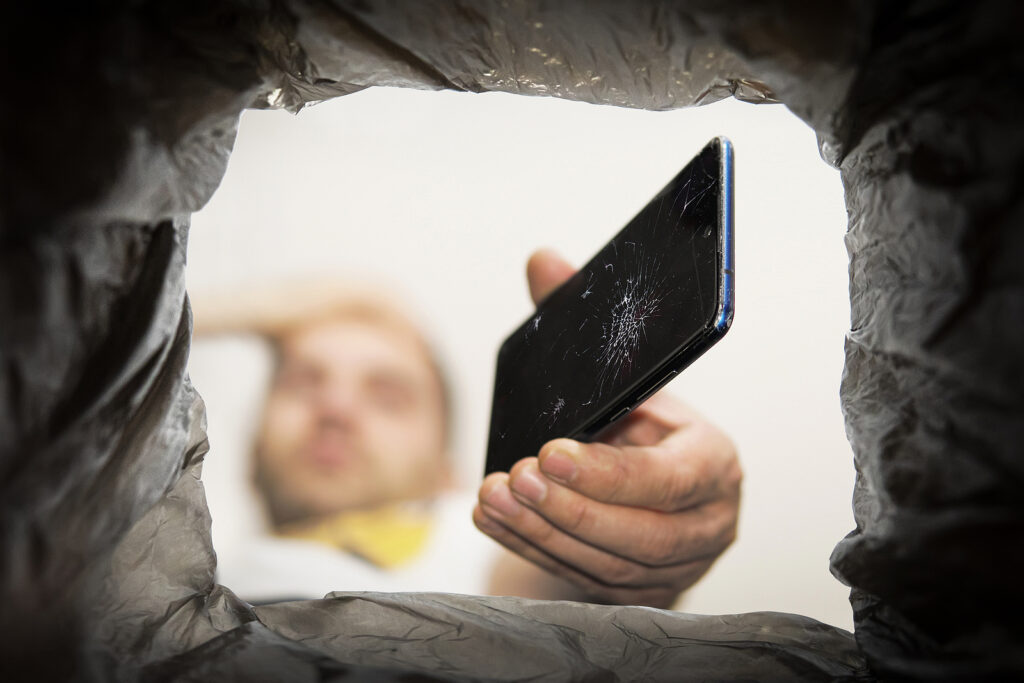Smartphones are ubiquitous, but knowing how to dispose of them? Not so much. Today, we’re going to talk about modern cell phone disposal: why cell phones and other electronic waste (eWaste) are hazardous, what dangers they pose in improper disposal, and what your local options might be for disposing of that cell phone, including donation programs, city programs, and options provided by us at NEDT.
The Dangers of Lithium Batteries
Since lithium is reactive with water and can thermally runaway due to damage, lithium batteries cannot be disposed of in the trash. Instead, they must be taken to specialized facilities or events sponsored by your local Board of Health. This isn’t true of all: some batteries can be disposed of at home, but the risk of fire means lithium batteries will not be handled by waste management. You can learn more about lithium battery dangers, especially in smartphones, in our blog, Lithium Battery Disposal: Swelling and Fire Hazards Explained.
Heavy Metals in Electronic Waste
Lithium isn’t the only dangerous metal in cell phones. In the circuitry and screen will be several kinds of hazardous heavy metals. While it varies from device to device, especially with age, some of the common heavy metals in electronics include:
- Cadmium: A heavy metal commonly found in certain types of batteries and related electronics, cadmium can cause health effects with long-term exposure. This metal can leach into the environment when improperly disposed of to cause damage there as well.
- Mercury: Certain types of screens or electronic components (like mercury switches) may contain mercury. This liquid heavy metal can pose a hazard when these components are damaged, including health issues and environmental damage.
Some devices may also contain lead, but that’s usually only found in older electronics. Learn more in our blog, Heavy Metal Hazards in Household Waste.
Cell Phone Disposal: What are Your Options?
If your cell phone is old, damaged, or broken, you may be looking at your smartphone disposal options. Due to the above-mentioned hazardous materials, at-home disposal isn’t an option. Many carriers will offer trade-in options, ranging from full replacement with a new phone to in-store credit or free disposal. If that’s not an option, you may find donation options for working phones in your area or an eWaste disposal event hosted by your local township or city. If those are not options or you’re looking for an easier solution, NEDT can help.
At NEDT, we simplify hazardous product disposal with our one-stop Collection Centers, providing quick and safe service for all your needs, including a pickup service! We also take all other sorts of eWaste, hazardous chemicals, and more: see what we accept. We’re always looking to provide more information and resources for our customers, including our Blog and Fact Sheets page. Contact us or give us a call, and plan your trip today!



Leave a Reply